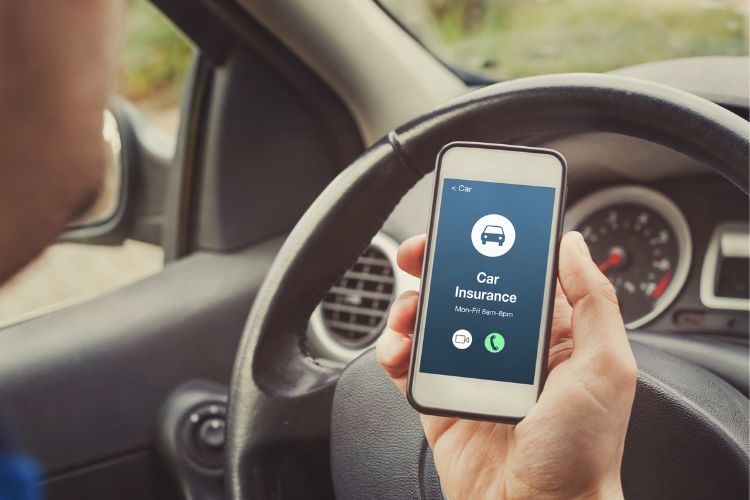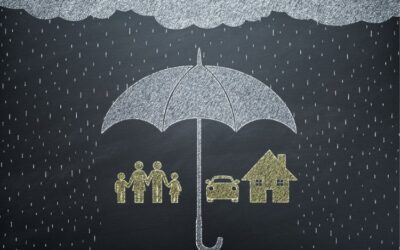
by Gordon Buchanan | Jan 5, 2023 | Uncategorized
General liability insurance is a broad type of insurance that covers general business risks. This is typically the first kind of insurance that a company purchases and covers basic needs like bodily injury, property damage, and medical payments. It’s important to note that general liability insurance takes many forms. The general answer is that you should have general liability coverage for your contracting business, the question is, which type?
There are three main types of contractor insurance. The first is contractor’s liability insurance, for those who have small budgets with projects that do not require a ton of insurance and the business does not have substantial assets to leverage. Its primary function is to cover claims made by damage a contractor causes to a third party. Within this coverage there are multiple subcategories: workers compensation, property insurance, and commercial auto. Workers compensation is critical for your contracting business because it covers injuries that your employees sustain while performing their contracted duties. Property insurance is for if you own property. Finally, commercial auto is for a business utilities company automobiles.
The next type of contractor insurance is for larger projects that require certain types of insurance coverage. There is a liability type of insurance that can cover basically any size construction project. In addition, a part covers leased equipment. The last kind of general liability coverage is for large projects. Any sort of construction project that has pollution or environmental implications will fall under this umbrella.
To conclude, it is a smart idea for any construction business to maintain general liability insurance. This helps to protect all parties involved: your business, your employees, and any citizen who wanders near your project. You have different types of liability coverage to assist in all aspects of your specific business.
The local team at Winstead Insurance in Elkton, MD is here to help answer any of your insurance questions. We have a wealth of knowledge and the expertise to handle any of your insurance challenges. Give us a call today or visit our quote page for a free quote https://www.winsteadinsurance.com/get-a-quote/.

by Gordon Buchanan | Dec 7, 2022 | Uncategorized
Hitting the road with your car is a great way to save on rental costs and take more control over how you travel. However, it can be tempting to throw in an extra $20 for that peace of mind if you’re renting a car.
Here’s what you should know about adding rental insurance coverage to your auto policy.
Auto Insurance Can Cover Rental Cars
The last thing you need is a costly accident or fender bender in a rental car. But do you need the added expense of rental insurance? Rental insurance is an option on most auto insurance policies. It covers you if your rental car is damaged or stolen.
Typically you are financially responsible for damage to the rented vehicle. Some insurance policies will cover rental car damage from an accident, but you will want to check with your insurance company to ensure your policy includes that.
If an accident was caused by someone else’s negligence (for example, another driver hit your car after running a red light) you typically will be covered under your standard liability policy.
When in doubt, buy liability insurance from the car rental agency and let your policy cover vehicle damage.
Rental Car Coverage Does Not Cover Routine Maintenance
Rental car coverage is different from rental car reimbursement. Rental car coverage only protects the car you rented temporarily. On the other hand, if you’re involved in a covered accident driving your personal vehicle, rental car reimbursement on your auto insurance can pay for rental car use while your vehicle undergoes repairs.
Then, your auto insurance policy may cover the cost of the repairs to your vehicle and the cost of renting a car while in the shop.
Buy from the Car Rental Agency If You Have a Basic Policy
If you have an older or basic policy, consider adding rental car coverage when renting a car. These policies typically only cover damage that happens while in your vehicle.
Suppose your policy doesn’t cover damage to the outside of your vehicle. In that case, it’s worth buying damage insurance from the rental car agency.
Pros and Cons of Adding Rental Car Coverage
Pros:
- It’s a cheap way to protect yourself while driving a rental vehicle.
- You have coverage if you get into an accident, regardless of who is at fault.
Cons:
- If money is tight, it may be challenging to afford additional coverage on top of the cost of your rental car and personal insurance policy.
- Your auto insurance company will charge an additional fee for this kind of extra protection.
Final Thoughts
When it comes to rental car insurance, there are just too many variables to answer the question of whether or not you should have it.
It’s essential to understand what kinds of coverage you already have and what types of risks you face when renting a car. For example, if your policy doesn’t cover rental cars, adding one to your existing auto insurance may make sense in some situations.
At Winstead Insurance, we can help you navigate how rental car coverage works and whether adding it to your policy makes sense. We can also help you compare quotes from multiple insurers to find the right coverage for you.

by Gordon Buchanan | Dec 7, 2022 | Uncategorized
When you’re living with your significant other, adding them to your auto insurance policy can be tempting. After all, they’re driving your car and sharing the costs of maintenance and repairs. However, if you get married or break up, it’ll be easier for one person to handle switching policies than two.
But before making this decision, you should know that more than cohabitation is needed to make a partner eligible for coverage on another person’s policy. Moreover, adding someone else can have unintended consequences if things go differently than planned.
Should I Add My Girlfriend Or Boyfriend To My Car Insurance?
Typically, it’s permitted to add your significant other to your auto insurance policy if they live with you, you share vehicles, have separate cars, and you want to share a policy.
Another option is to add their name to your policy as a covered driver. If you and your significant other prefer to maintain separate policies but drive each other’s cars, name each other as listed drivers on the policy. Some insurance companies may mandate adding your significant other if they drive your car regularly.
However, if your significant other has a sordid driving history, adding them to your policy could increase your rates. Then, exclude them as a covered driver. Be sure to verify with your insurance company or state laws to find out if it’s allowed. Unfortunately, they won’t be covered if they drive your vehicle, and you’ll be liable for any damages they cause.
How Do I Add A Significant Other To My Auto Policy?
Adding a significant other to your auto insurance policy is easy. But first, call the insurer and tell them that you want to add them to your policy.
The company will likely require proof of the relationship, such as shared finances or joint bank accounts. You can make this change during renewal or even after you or your partner make claims if they have been added already.
Who Requires Adding My Significant Other To My Policy?
Most car insurance companies ask you to list any licensed drivers living in your household with access to a vehicle. For example, let’s say your girlfriend or boyfriend lives with you, and they drive your car daily to work. Since they’re driving your vehicle more often, your insurance company may require you to add them to your policy as a driver.
How Do I Change My Policy If We Get Married Or Break Up?
If you get married, your significant other can stay on the policy, and most insurers require it.
However, suppose you break up and no longer live together or drive each other’s cars. In that case, you need to get your own policy as soon as possible, so you’re not uninsured.
Final Thoughts
In some cases, adding a significant other to your insurance policy is a personal decision, but in others, your insurer might require it. Winstead Insurance can help you add your significant other to your car insurance policy. We’ll ensure you have the coverage you need for the best possible rate.

by Gordon Buchanan | Oct 13, 2022 | Uncategorized
You’re not alone if you’ve noticed that your car insurance bill is higher than last year. Inflation affects everything we purchase, and this includes car insurance premiums.
So how can you find affordable car insurance? What’s the best way to get lower rates? How can you do anything about it right now? You’re about to find out.
Factors Affecting Insurance Premium Increases
New Cars Cost More
Newer cars have more safety and security features, like onboard computer interfaces, making them less likely to be involved in crashes and accidents. However, these same features mean that newer cars cost more to repair if there’s an accident.
Cars Cost More to Repair
The cost of new cars isn’t the only problem; the cost of repairing cars has increased. In addition, the cost of parts and labor has increased, regardless of whether they are OEM or aftermarket parts.
Car Crashes are More Frequent and Severe
Roads and highways have more cars than ever before. Multiplying that with the number of people distracted by phones or other electronics creates a recipe for more frequent and more fatal car crashes.
More Comprehensive Claims
Comprehensive insurance pays to repair or replace your car for non-collision events like:
- Theft
- Fire
- Accidents with animals
- Glass and windshield damage
- Weather or other acts of nature
- Vandalism
Theft in particular has significantly increased, specifically catalytic converter parts, which costs between $1,000 and $3,000 to replace.
Supply Chain Setbacks
Supply chain snags are another common reason you might see your car insurance rate increase. This happens when there’s a problem with the parts or cars in the supply chain, and they can’t be delivered to manufacturers in time, causing delays and shortages that increase costs across the board.
How to Defend Against Rising Car Insurance Rates
Reevaluate Deductibles with Your Agent
Every car insurance policy has a deductible–the amount of money you have to pay before an insurance company takes over payment for an accident or other claim.
The higher your lower, the higher your premium (the cost of the policy). However, if you reduce your deductible amount and accept a larger share of financial responsibility, it can save you hundreds.
Your insurance agent can help you evaluate whether this is a wise strategy by discussing your financial position and the amount of risk you’re willing to take.
Consider How Much Coverage You Need
If you bought your car insurance policy a while ago, your needs may have changed since then. For example, your car got older, you don’t drive as much, or you have more savings in the bank.
In this situation, consider changing your car insurance coverage to lower your rates. Do you still need the same coverage? Can you drop extras like towing or rental car reimbursement?
Review Your Vehicle Use
Since the pandemic, more people have begun working from home. Instead of driving their car primarily to commute to and from work, they now use it for pleasure, like going to see friends or family and doing errands like shopping.
If that is similar to your situation, reclassifying your car’s use from commute to pleasure could save you some money.
Shop Around for Lower Insurance Prices
Find lower car insurance rates by comparing rates from several companies. Independent insurance agents use dozens of carriers to help you find the best fit for your needs.
We can help you shop around with other carriers offering better rates than your current policy. Best of all, comparison shopping costs you nothing and there’s no obligation to switch.
Ask About Discounts
Most people don’t realize auto insurance companies offer a multitude of discounts like continuous coverage, good student, veteran, multi-policy, and more. Ask your agent about discounts to save even more money on car insurance.
Final Thoughts
While it can be frustrating to have car insurance rates go up, the good news is that there are ways to lower them.
You can start by asking your auto insurance agent about discounts and comparing prices with other providers. If you find one of these options isn’t working for you anymore, it might be time for a change.

by Gordon Buchanan | Oct 13, 2022 | Uncategorized
Insurance agents are not all made the same. Some work for big companies that limit how they can help customers. Others are independent agents beholden to no insurance company.
The level of service and quality of insurance recommendations are significantly distinct depending on which type of agent you work with.
What is a Captive Insurance Agent?
The term “captive agent” is an employee of a specific insurance company, like the ones you see advertised on TV or during a sports game. They are obligated to force-fit their products to your needs, whether it’s in your best interest or not.
A captive agent doesn’t work for you but instead works for the insurance company they represent. As a result, any benefits you receive are limited to what that particular company offers.
Captive agents are limited to a single company’s products
Captive agents typically can’t access other companies’ products and can’t help you compare quotes.
For example, a captive agent might offer you an expensive life insurance policy because it’s all they have available to them. By contrast, an independent agent can look at dozens of insurance companies and find the right one that fits your needs.
Captive agents can’t create custom insurance solutions
As a result of their tools and resources, they can’t make a custom insurance solution, such as stacking a final expense life insurance policy with a term life policy. Captive agents must convince you that their company’s products are the only option.
Captive agents don’t put customers’ needs first
Captive agents must meet their company’s sales quotas. As a result, these agents are more likely to push insurance products that are not suitable or over-insure their customers.
What is an Independent Insurance Agent?
Independent agents work with multiple insurers, are self-employed, and are not company employees. Therefore, they don’t have a corporate agenda and can give unbiased advice about what insurance plan will be best for you.
Independent agents encourage you to get quotes from multiple carriers
Independent agents can provide quotes from dozens of carriers to find the best product for your needs. For example, one company they work with might be more lenient in height and weight requirements than another. Independent agents know how to find the right fit.
Independent agents often act as fiduciaries
A fiduciary relationship is based on good faith, trust, and requires agents to act in the customer’s best interest. Captive agents are not held to the same fiduciary standard as independent agents.
By contrast, independent agents take their fiduciary responsibility more seriously than captive agents.
Independent agents can help you with multiple policies
Independent agents have access to several companies and types of insurance, so it’s like a one-stop shop to buy all of your insurance.
Independent agents work with you to save money
You’ll save money working with an independent agent because they can shop around several companies, compare quotes, and help you pick the best one. Captive agents have no incentive to help you save money.
Final Thoughts
An independent insurance agent is the best choice for you and your family. They cultivate a lasting relationship with you, get to know you and your family, and are prepared to help you adjust as your family grows and changes.

by Gordon Buchanan | Sep 15, 2022 | Uncategorized
Shopping for car insurance is the best time to learn about and understand your policy. The worst time to find out what coverage you own is after an accident and filing a claim.
Ask your agent to answer these questions before you buy a car insurance policy.
What Auto Coverage Should I Get?
Car insurance is customizable to each person, and your agent can recommend appropriate coverage that addresses your concerns. First, you’ll need the minimum coverage your state requires, like liability insurance. But, many people want to protect themselves and their vehicle with coverage above the minimum.
Consider these auto insurance coverages with your agent:
- Liability insurance. Do you need to protect your assets with a higher liability limit?
- Comprehensive and collision insurance. Do you want insurance to pay for damage to your vehicle in an accident?
- Uninsured and underinsured motorist insurance. Do you need insurance to cover repairs if an uninsured or underinsured motorist hits you?
- Rental car reimbursement. Do you want the policy to reimburse you for a rental car while yours undergoes repairs?
- Gap insurance. If you have a loan or financing agreement, gap insurance can ensure you don’t owe more than the car’s worth if it’s totaled.
- Towing and roadside assistance. Do you want reimbursement if you need a tow or flat fixed on the road?
Your agent can discuss how each coverage works and help you determine if it’s right for you. Evaluate your auto protection every year as your wealth changes. At the same time, ensure you’re not over-insuring, like buying top-tier coverage for a 15-year-old car.
But make sure you ask the next question, too.
What Isn’t Covered on My Auto Insurance Policy?
Exclusions and insured responsibilities are standard with all types of insurance so make sure you also understand what your car insurance policy doesn’t cover.
Ask specific questions like:
- Will this policy cover me if I drive a rental car on vacation?
- How does the policy cover if a friend or a family member has an accident in my car? What happens to my premiums, then?
- Who pays for mechanical repairs to my vehicle?
- Who pays to tow and store my car after an accident?
- Who pays for medical bills if another person or I am injured in an accident?
How Much Would I Pay Out-of-Pocket If I’m Involved in an Accident?
Ask your auto insurance agent for scenarios illustrating how much you’d pay out-of-pocket in an accident that is and is not your fault.
Without specific coverage, such as collision and comprehensive, you may have to pay more out of pocket than you’d like. Also, ask about your deductible and how it affects your rates.
Discuss whether rental car reimbursement and roadside assistance are a good fit for you. If you already have another service like AAA, you may not need it.
Am I Getting All the Discounts That I Qualify For?
Auto insurance rates depend on several factors, including where you live, your age, sex, years of driving experience, driving history, type of vehicle, miles driven, and the insurance company.
Fortunately, many people qualify for discounts like:
- Safe driver
- Multi-car
- Safety equipment
- Multi-policy bundling
- Good student
- Electric/hybrid car
- Auto payment or payment in full
Request that your insurance agent reviews the policy to ensure you receive all the discounts you qualify for.
How Do I Know If I’m Getting the Lowest Rates?
Independent agencies like Winstead Insurance can provide identical quotes from several different companies, allowing you to shop around for the best price.
Let us do a free comparison quote for you with no obligation. Call Winstead Insurance at (410) 398-6700 today.











Recent Comments